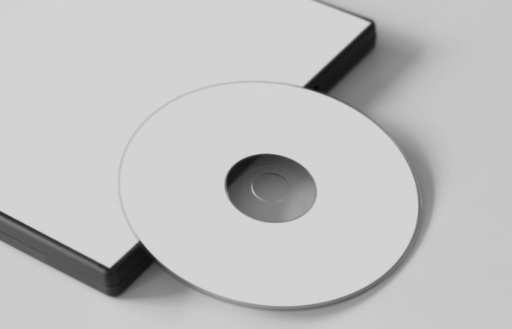我正在使用下面的代码来捕获在目录中创建的文件:
strComputer = "."
strQueryFolder = Replace(strFolder,"\","\\\\")
Set objWMIService = GetObject("winmgmts:" & "{impersonationLevel=impersonate}!\\" & strComputer & "\root\cimv2")
Set colMonitoredEvents = objWMIService.ExecNotificationQuery ("SELECT * FROM __InstanceCreationEvent WITHIN " & nFrequency & " WHERE Targetinstance ISA 'CIM_DirectoryContainsFile' and TargetInstance.GroupComponent='Win32_Directory.Name=""" & strQueryFolder & """'")
Do
Set objLatestEvent = colMonitoredEvents.NextEvent
strNewFile = objLatestEvent.TargetInstance.PartComponent
arrNewFile = Split(strNewFile,"=")
strFilePath = arrNewFile(1)
strFilePath = Replace(strFilePath,"\\","\")
strFilePath = Replace(strFilePath,Chr(34),"")
strFileName = Replace(strFilePath,strFolder,"")
strTempFilePath = WScript.CreateObject("Scripting.FileSystemObject").GetSpecialFolder(2) & "\TEMP.M4A"
'Do something with strTempFilePath
Loop
问题是脚本在将文件写入目录时捕获该文件.
如何识别写文件的完成情况?
我记得我做过这样的Vbscript,你可以看看这段代码
我希望这可以帮助你并给你更多的想法.
Option Explicit
Dim fso,Message,Message2,Msg,intInterval,strDrive,strComputer,objWMIService,strQuery
Dim colEvents,objEvent,objTargetInst,objPrevInst,objProperty,ws,LOG_FILE_PATH,LogFile,Chemin,MonTableau
Set fso = CreateObject("Scripting.FileSystemObject")
Set ws = CreateObject("WScript.Shell")
strComputer = "."
Chemin = Parcourir_Dossier()
MonTableau = Split(Chemin,"\")
LogFile = MonTableau(UBound(MonTableau)) & ".log"
LOG_FILE_Path = ws.ExpandEnvironmentStrings("%AppData%") & "\" & LogFile
intInterval = "2"
'****************************************************************************************************
Function Parcourir_Dossier()
Dim ws,objFolder,Copyright
Copyright = "[ © Hackoo © 2014 ]"
Set ws = CreateObject("Shell.Application")
Set objFolder = ws.BrowseForFolder(0,"Choose the folder to watch for "_
& Copyright,1,"c:\Programs")
If objFolder Is Nothing Then
Wscript.Quit
End If
Parcourir_Dossier = objFolder.self.path
end Function
'****************************************************************************************************
Chemin = Split(fso.GetAbsolutePathName(Chemin),":")
strDrive = Chemin(0) & ":"
strFolder = Replace(Chemin(1),"\\")
If Right(strFolder,2) <> "\\" Then strFolder = strFolder & "\\"
'Connexion au WMI
Set objWMIService = GetObject( "winmgmts:" &_
"{impersonationLevel=impersonate}!\\" &_
strComputer & "\root\cimv2" )
'La chaîne de la requête
strQuery = _
"Select * From __InstanceOperationEvent" _
& " Within " & intInterval _
& " Where Targetinstance Isa 'CIM_DataFile'" _
& " And TargetInstance.Drive='" & strDrive & "'"_
& " And TargetInstance.path='" & strFolder & "'"
'Exécutez la requête
Set colEvents = _
objWMIService.ExecNotificationQuery(strQuery)
Do
Set objEvent = colEvents.NextEvent()
Set objTargetInst = objEvent.TargetInstance
Select Case objEvent.path_.Class
'Si c'est le cas de la création de fichier ou d'un événement de suppression et afficher
'juste le nom du fichier
Case "__InstanceCreationEvent"
Message = DblQuote(objTargetInst.Name) & " is created !"
Message2 = String(10,"*") & Now & String(10,"*") & vbCrLf & Message & vbCrLf & String(70,"*")
Call Log(LOG_FILE_Path,Message2)
'MsgBox Message2,VbInformation,Message
Case "__InstanceDeletionEvent"
Message = DblQuote(objTargetInst.Name) & " is deleted !"
Message2 = String(10,Message
'Si c'est le cas de la modification du fichier,comparer les valeurs de propriété de la cible et de l'instance précédente
'et afficher les propriétés qui ont été changé comme la taille et LastModified
Case "__InstanceModificationEvent"
Set objPrevInst = objEvent.PreviousInstance
For Each objProperty In objTargetInst.Properties_
If objProperty.Value <> _
objPrevInst.Properties_(objProperty.Name) Then
Message = "modified file : " & vbCrLf &_
objTargetInst.Name & vbCrLf &_
"Property : "_
& objProperty.Name & vbCrLf &_
"Last Value : "_
& objPrevInst.Properties_(objProperty.Name) & vbCrLf &_
"New value : " _
& objProperty.Value
Message2 = String(10,"*")
Call Log(LOG_FILE_Path,Message2)
'MsgBox Message,64,DblQuote(objTargetInst.Name)
End If
Next
End Select
Loop
'**********************************************************************************************
Function DblQuote(Str)
DblQuote = Chr(34) & Str & Chr(34)
End Function
'**********************************************************************************************
Sub Log(strLogFileChemin,strLogContent)
Const APPEND = 8
Dim objFso,objLogFile
Set objFso = CreateObject("Scripting.FileSystemObject")
If Not objFso.FileExists(strLogFileChemin) Then objFso.CreateTextFile(strLogFileChemin,True).Close
Set objLogFile = objFso.OpenTextFile(strLogFileChemin,APPEND)
objLogFile.WriteLine strLogContent
objLogFile.Close
End Sub
'**********************************************************************************************

 文章浏览阅读2.2k次,点赞6次,收藏20次。在我们平时办公工作...
文章浏览阅读2.2k次,点赞6次,收藏20次。在我们平时办公工作... 文章浏览阅读3.2k次,点赞2次,收藏6次。2、鼠标依次点击“计...
文章浏览阅读3.2k次,点赞2次,收藏6次。2、鼠标依次点击“计... 文章浏览阅读1.3w次。蓝光版属于高清版的一种。BD英文全名是...
文章浏览阅读1.3w次。蓝光版属于高清版的一种。BD英文全名是... 文章浏览阅读1.4w次,点赞5次,收藏22次。如果使用iterator的...
文章浏览阅读1.4w次,点赞5次,收藏22次。如果使用iterator的...